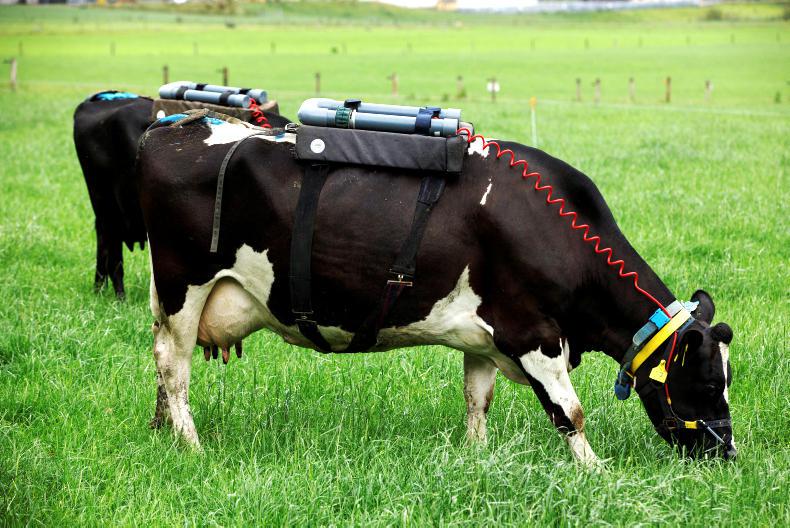Methane emissions from agriculture do not need to fall to zero for the sector to stop contributing to global warming, a leading climate scientist has said.
“Fossil carbon dioxide emissions are the real problem and our whole economy totally relies on them.
“Getting that to zero, or removing any residuals so we get to net zero, is a massive ask,” said Dr Michelle Cain from Cranfield University.
I don’t think anybody is really suggesting zero biogenic methane emissions, which is methane from biological systems like cattle
“I don’t think anybody is suggesting that we need to get to zero methane emissions. You could say we need zero fossil methane emissions, but I don’t think anybody is really suggesting zero biogenic methane emissions, which is methane from biological systems like cattle,” she said.
Speaking at an online event on Monday, Cain explained that methane is a “very different” greenhouse gas when compared to carbon dioxide.
“If you emit some methane, then in 10 years, about half of it will already be destroyed through chemical reactions.
“That makes it very different from carbon dioxide, which is a very long-lived gas,” she said.
As soon as we start decreasing methane emissions, the temperature contribution goes down as well
This means that carbon dioxide will only stop contributing to global warming once emissions reach net zero, whereas methane stops warming the atmosphere when there are relatively small reductions in emissions.
“As soon as we start decreasing methane emissions, the temperature contribution goes down as well,” Cain said.
The climate scientist suggested that significant cuts in methane emissions from agriculture could be achievable through improved efficiencies on farms, or by using new technologies, such as feed additives.
NI targets
The issue of methane reduction targets is particularly relevant to NI as two climate change bills are currently making their way through Stormont.
The bill put forward by Green Party MLA Clare Bailey sets a target for all greenhouse gases emissions in NI, including methane, to reach net zero by 2045.
However, targets contained within a separate bill from Agriculture Minister Edwin Poots are based on a 42% reduction in methane emissions by 2050.
Debate on methane takes focus off fossil fuels
The debate about rapidly cutting methane emissions by reducing meat and dairy consumption takes the focus off fossil fuels, listeners to this week’s “Countryside COP” webinar were told.
A very rapid reduction in methane to a large degree, in the short term at least, offsets those continuing rises in carbon dioxide
Yorkshire beef farmer Andrew Loftus said policy makers were realising that “one of the easiest ways” of slowing global warming was to cut methane emissions through changing consumers’ diets.
“A very rapid reduction in methane to a large degree, in the short term at least, offsets those continuing rises in carbon dioxide,” he said.
“Reducing methane from cattle and other ruminants gets carbon dioxide producers, that’s fossil fuel burners, off the hook for a while,” he suggested.
Loftus, who is the former head of agriculture at supermarket chain Morrisons, said this approach was “both unfair and dangerous” because carbon dioxide emissions stay in the atmosphere and have a warming effect for centuries.






 This is a subscriber-only article
This is a subscriber-only article










SHARING OPTIONS: